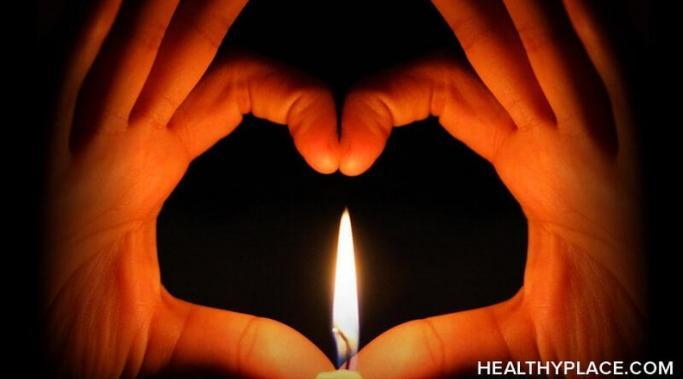Blogs
In bipolar disorder, stress is a problem. This is not to suggest that stress can't be a problem for anyone, but stress can actually worsen the symptoms of bipolar disorder and decrease stability so it's something we with bipolar really have to be concerned about. Read about how stress feels in bipolar disorder and what you can do about it.
Black-and-white thinking is common to posttraumatic stress disorder (PTSD). When you are traumatized, especially repeatedly, you begin to believe that life is all good or all bad. Unfortunately, it’s more common to lean towards all bad, because that is what the traumatic experiences you lived through taught you.
Now that the holidays are over, I can sit back and congratulate myself on a job well done. I got through the holidays with lots of joy—and without having a meltdown. That can be hard for anyone, not just someone like me with schizoaffective disorder. I know the holidays are supposed to be the happiest time of the year, but all this pressure to be worry-free is one of the reasons the holidays can be so stressful, along with shopping, planning, and social commitments. Here’s how this schizoaffective got through the holidays without having a major freak-out.
Anxiety therapy is an option for treating anxiety; indeed, counseling for anxiety can be very beneficial in helping you overcome worries and replace them with things that you find important and valuable. If you've thought about seeing a counselor but are unsure whether it's worth it, you're not alone. Deciding whether to seek professional help can sometimes cause more anxiety. Consider the following five benefits of anxiety therapy to help you determine whether counseling for anxiety is right for you.
In my last post, I touched on music for anxiety relief. I want to do the same today, albeit from a different direction. My previous post focused exclusively on the impact of one specific song. This time, I want to talk about the impact of music for anxiety relief in a more general sense.
My mental illness recovery is important to me, now more than ever, because of my daughter. I have been in mental illness recovery since my early 20s, long before I ever thought I'd be a mom. When my husband and I found out we were expecting, we were ecstatic, but I also felt overwhelmed. There is no turning back from this awesome responsibility. Nothing would ever be the same. My daughter is now two-and-a-half, and it's like I can't even remember what life was like without her. There's so much I want to show her and teach her, but I have to be mentally healthy and well to do that. Here are four reasons my daughter motivates me to make my mental illness recovery important.
Victim blaming typically happens from the outside looking in, but there was a large amount of blaming myself for the verbal abuse aimed at me during my abusive relationship. There were many times when there was a voice inside of me wondering if it was my fault that my boyfriend verbally abused me. This, despite the fact that I knew it shouldn't be happening.
Getting things done when you don't feel like it can be more challenging than it sounds. It is so easy to look at our to-do list and become paralyzed. This happens to me more often than I would like, but when I catch myself, there are a few things I do that help me. Read this article to learn three ways to get things done when you don't feel like it.
A daily affirmation regarding love and bliss can change the way you experience the world. Many of us who live with mental illness feel unlovable occasionally, if not constantly. That feeling can be caused by our own negative thought cycles or by actual events. Sometimes, a partner ends a relationship due to mental illness, which can be heartbreaking. Other times, a partner who doesn’t understand our different needs may stay with us but become abusive or perhaps simply unsupportive. This lack of love and bliss takes a further toll on our mental health.
I’m Randall Law, the co-author of the blog, "Creative Schizophrenia." I’m an often clueless father of three, a work in progress husband to one, a rabid sports fanatic and an unemployed physician assistant learning to live with schizophrenia while renovating a farmhouse built in 1910.









